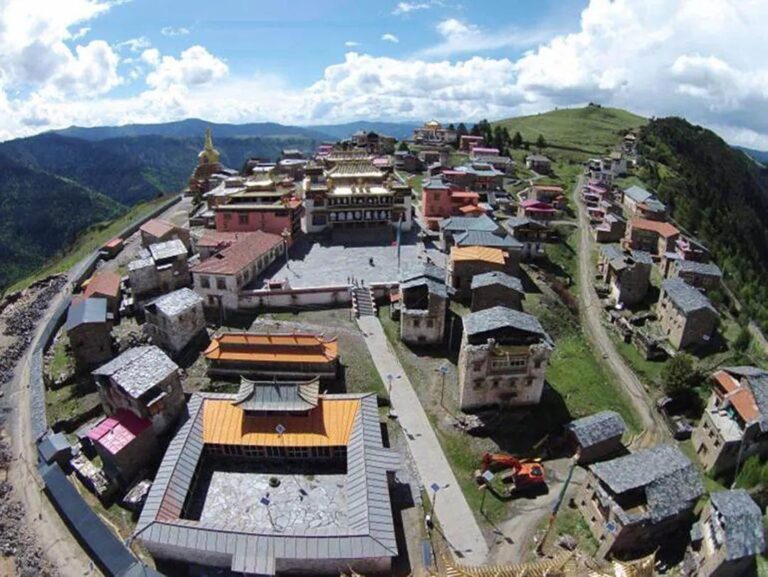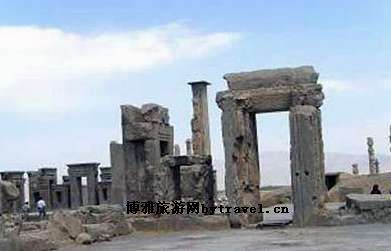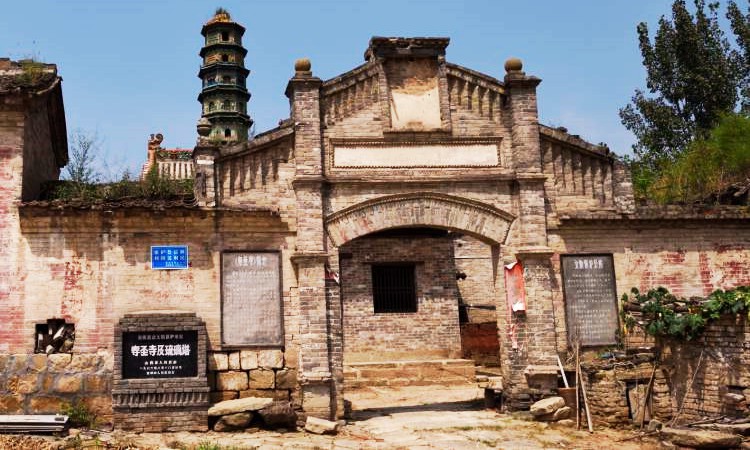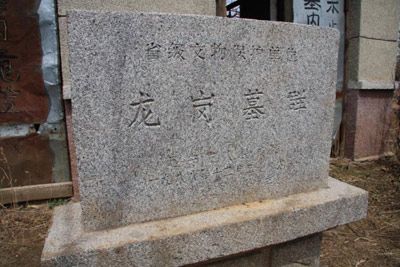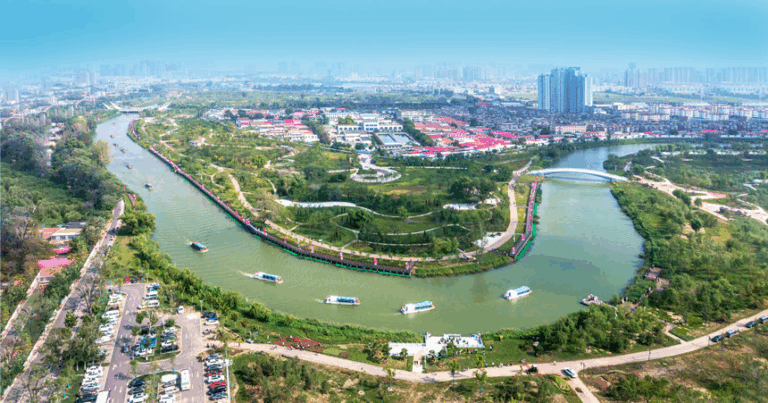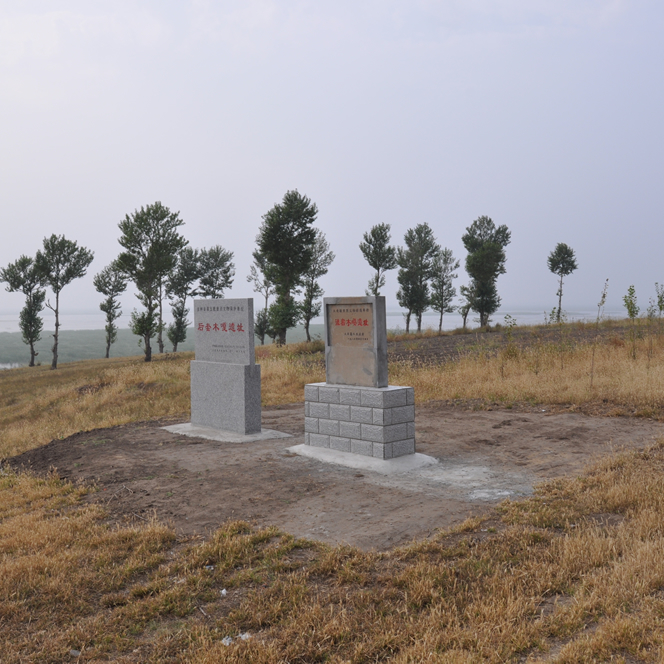A Food Lover’s Guide to Yongzhou Lida Guju: Culinary Delights in Hunan
An Essential Guide to Visiting Yongzhou Lida Guju
In This Guide
- An Essential Guide to Visiting Yongzhou Lida Guju
- The Rich History of Yongzhou Lida Guju
- Main Highlights: What to See at Yongzhou Lida Guju
- Planning Your Visit: A Practical Guide
- Tickets, Hours, and Booking
- How to Get There
- Local Cuisine and Accommodation
- Frequently Asked Questions
- Final Thoughts on Your Trip
Nestled in the serene landscapes of Yongzhou, Hunan Province, the Yongzhou Lida Guju (李达故居) is more than just a historical residence; it is a monument to the indomitable spirit of revolutionary thought and action in China. This significant site is the birthplace of Li Da (李达), a prominent figure in the founding of the Chinese Communist Party and a revolutionary leader known for his advocacy of Marxism and his contributions to education and philosophy.
Constructed in a traditional Qing Dynasty style, the Lida Guju boasts a classic four-sided courtyard layout, characteristic of the region’s architectural heritage. The residence itself is a harmonious blend of function and form, featuring intricately designed wooden structures and an elegant garden, providing a glimpse into the life of one of China’s most influential thinkers. As you stroll through its spacious rooms and tranquil courtyards, the air is imbued with a sense of history, reflecting the profound legacy of Li Da’s youth spent here, where he cultivated the ideals that would shape modern China.
Recognized as a national key cultural relic and a base for patriotic education, the Li Da residence attracts over 200,000 visitors annually, inviting them to explore the rich narratives of revolutionary history. The site is not only an important educational resource but also a serene retreat that encapsulates the beauty of Hunan’s natural surroundings. As you embark on your journey to Lida Guju, prepare to delve into a world where history and culture intertwine, offering insights into the life and times of a man whose ideas continue to resonate across generations.
The Rich History of Yongzhou Lida Guju
Nestled in the picturesque landscape of Yongzhou, Hunan Province, the Yongzhou Lida Guju (李达故居) serves as a poignant reminder of a significant chapter in Chinese history. This historic residence is the birthplace of Li Da (李达), a pivotal figure in the founding of the Chinese Communist Party and an influential Marxist theorist. Born on October 2, 1890, in this modest yet architecturally rich setting, Li Da’s early life is intricately tied to the development of revolutionary thought in China.
The residence itself is a fine example of traditional architecture from the late Qing dynasty, characterized by its unique four-sided courtyard layout typical of the Xiangnan region. Spanning an area of 1,260 square meters, the compound includes a main hall, side wings, and beautifully maintained gardens, reflecting the cultural and historical significance of the site. The structure showcases a harmonious blend of simplicity and elegance, featuring intricate wooden carvings and a symmetrical layout, which is a hallmark of ancient Chinese architecture.
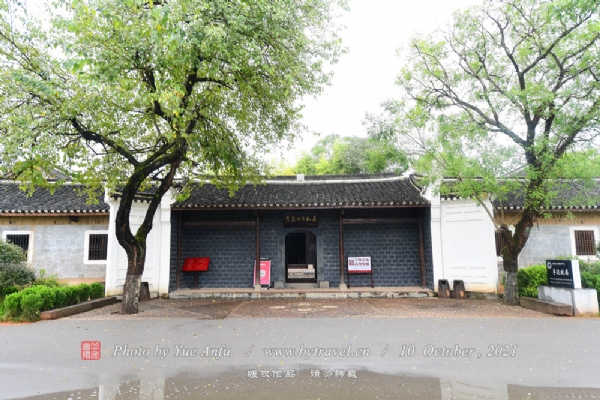
Yongzhou Lida Guju.
Li Da’s contributions to Marxism and his role in the May Fourth Movement were foundational in shaping the political landscape of modern China. After his studies and early political activism, he returned to his hometown in 1936, a time when he sought refuge from the escalating tensions of the anti-Japanese war. It was during this period that he transformed part of the residence into a workspace, where he penned critical works that would influence generations. Notably, his writings during this time included theories that would later gain recognition and approval from key figures, including Mao Zedong.
The significance of Lida Guju goes beyond its architectural beauty; it is a monument to the revolutionary spirit. As a historical site, it has been designated as a national patriotic education base and is recognized as a key cultural relic. The location attracts over 200,000 visitors annually, serving both as a memorial and an educational resource about the revolutionary history of China.
In 2013, the residence was officially listed as a national key cultural relic protection unit, ensuring its preservation for future generations. The local government has taken measures to maintain the site in excellent condition, highlighting its importance in promoting patriotic education and red tourism.
Today, the Yongzhou Lida Guju stands as both a tribute to Li Da’s legacy and a symbol of the broader narrative of China’s transition through the 20th century. As visitors explore this historical treasure, they engage not only with the life of an influential revolutionary but also with the enduring values of resilience and change that continue to shape the ethos of modern China.
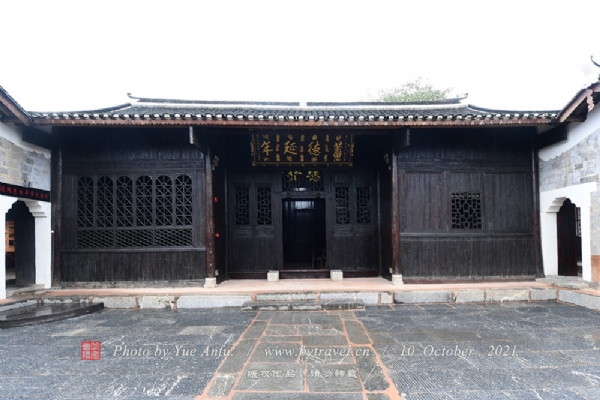
Yongzhou Lida Guju.
Main Highlights: What to See at Yongzhou Lida Guju
Nestled in the picturesque countryside of Yongzhou, the Li Da Former Residence stands as a testament to the rich historical and cultural tapestry of China. This traditional courtyard residence is not only the birthplace of Li Da, a significant figure in the founding of the Chinese Communist Party, but also serves as a vital revolutionary memorial.
Architectural Charm
The Li Da Former Residence is a quintessential example of the traditional Qing-style architecture found in the Hunan province. Spanning 1,260 square meters, the residence features a well-preserved courtyard layout comprised of a main hall, side wings, and a bamboo garden, creating a serene and harmonious environment. The elegant design includes a distinctive “horseshoe” shape that reflects traditional Chinese aesthetic principles, ensuring that the space is both functional and visually appealing.
Historical Significance
Born on October 2, 1890, Li Da played a pivotal role as a Marxist theorist, educator, and revolutionary leader. His childhood home encapsulates his formative years and the early influences that shaped his ideology. The residence is not only a tribute to his life but also acts as a mirror reflecting the socio-political changes in China from the late Qing dynasty to the modern era. Each room tells a story, with artifacts and memorabilia that chronicle Li Da’s contributions to Marxism and education in China.
Cultural Education and Preservation
Recognized as a national patriotism education base and a key cultural heritage site, the Li Da Former Residence attracts over 200,000 visitors annually. The site hosts exhibitions detailing Li Da’s life, showcasing over 60 of his works and numerous photographs that highlight his achievements and the historical context of his time. The government’s efforts in preserving this residence ensure that it remains a crucial site for education and reflection on China’s revolutionary past.
Natural Beauty
Surrounded by lush rice fields and tranquil ponds, the residence is set against a backdrop of natural beauty that enhances its historical significance. The peaceful environment provides an ideal setting for visitors to explore the legacy of Li Da while enjoying the picturesque countryside of Yongzhou.
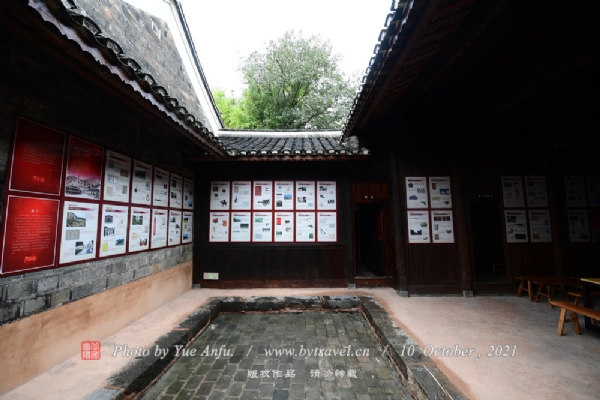
Yongzhou Lida Guju.
Access and Visitor Experience
Easily accessible by public transport, the Li Da Former Residence is a must-visit for anyone interested in Chinese history, architecture, or revolutionary studies. With well-maintained pathways and informative signage, visitors can engage deeply with both the cultural and historical narratives presented at this important site.
In summary, the Li Da Former Residence is not just an architectural gem; it is a vibrant symbol of China’s revolutionary history and a cherished site for education and remembrance.
Planning Your Visit: A Practical Guide
When planning a visit to Yongzhou Lida Guju, or the Former Residence of Li Da, it’s essential to be well-prepared to make the most out of your experience. This historical site is not only a testament to the life of a prominent revolutionary figure in China but also a stunning example of traditional architecture in the Hunan province. Here’s what you need to know for a practical visit.
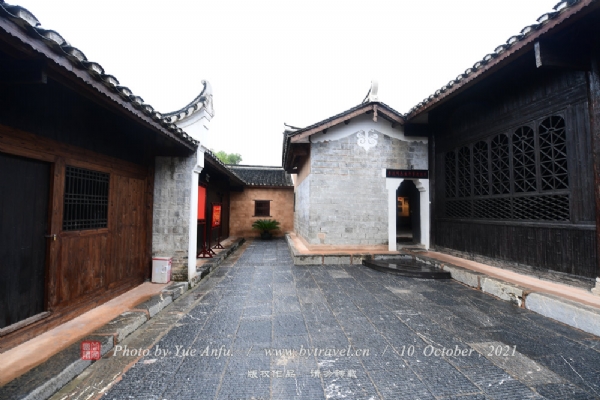
Yongzhou Lida Guju.
Location and Accessibility
Yongzhou Lida Guju is situated in the Oil Press Head Village of Lanjiaoshan Town, in the cold water beach district of Yongzhou, Hunan Province. The site is approximately 3 kilometers from the city center, making it accessible via local public transport. Visitors can take city buses (routes 301, 302, 303, 306, 24, or 36) to the Civic Center stop and then walk or drive the remaining distance.
Opening Hours
The residence is open to the public daily, typically from 8:30 AM to 5:30 PM. However, it is advisable to check the latest updates on opening hours, especially during public holidays or special commemorative events.
Admission Fees
There is no entrance fee to visit Lida Guju, making it an excellent option for budget travelers. Special exhibitions or guided tours may have separate charges, so inquire at the entrance if you are interested in those options.
Visitor Facilities
The site features a well-maintained exhibition hall that displays Li Da’s life and contributions, including over 60 of his published works and numerous photographs documenting his legacy. Facilities such as restrooms and informational signage are available to enhance visitor comfort.
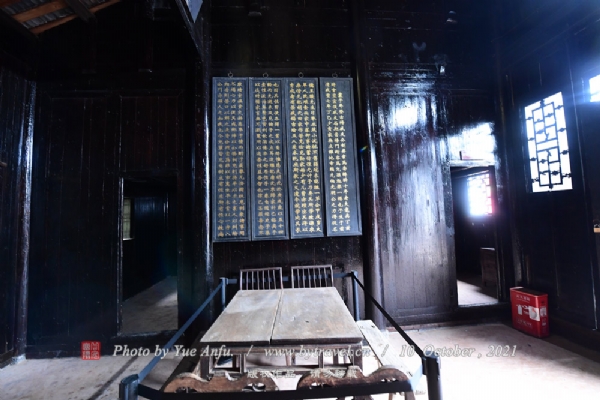
Yongzhou Lida Guju.
Recommended Duration
Plan to spend at least 1-2 hours exploring the residence and its surroundings. This will allow ample time to appreciate the architecture, view the displays, and walk through the beautiful bamboo gardens situated behind the house.
What to See
- Architectural Features: The residence is a classic example of a traditional Hunan-style courtyard house, showcasing exquisite craftsmanship. Pay attention to details like the elegant wooden eaves, intricate window designs, and the spacious layout that reflects ancient Chinese architectural principles.
- Historical Exhibits: The exhibition hall provides insights into Li Da’s role as a founder of the Communist Party of China and his influence on Marxist theory in China.
- Scenic Surroundings: The tranquil bamboo garden and the rice fields in front of the residence offer a picturesque setting for photographs and reflection.
Local Cuisine
While in Yongzhou, don’t miss the chance to sample local delicacies. Seek out traditional dishes such as:
– Zhongliang Duck: A unique style of smoked duck.
– Dong’an Chicken: Known for its distinct flavor and preparation method.
– Ningyuan Blood Duck: A specialty of the region, famous for its rich taste.
Nearby Attractions
Consider extending your visit by exploring nearby historical sites such as:
– Furen Primary School: The site founded by Li Da in 1946, reflecting his commitment to education.
– Lingnan Ancient Town: A charming area showcasing traditional architecture and local culture.
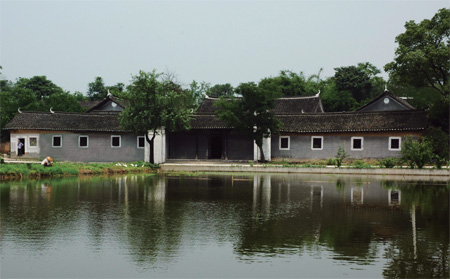
Yongzhou Lida Guju.
Practical Tips
- Best Time to Visit: The ideal seasons to visit are spring (March to May) and autumn (September to November) when the weather is mild and conducive to walking.
- Guided Tours: If you prefer a more in-depth understanding of the history and architecture, consider joining a guided tour. Local guides can provide valuable context and anecdotes that enhance your visit.
- Photography: The residence and its surroundings are incredibly photogenic, so don’t forget your camera. Be respectful of the site and other visitors when taking photos.
By keeping these practical tips in mind, your visit to Yongzhou Lida Guju will be both enjoyable and enriching, allowing you to connect with an essential part of China’s revolutionary history and cultural heritage.
Tickets, Hours, and Booking
Visiting Yongzhou Lida Guju, the historic residence of the revolutionary figure Li Da, is a profound experience that blends cultural heritage with a lesson in Chinese history. Here’s what you need to know about tickets and visiting this important site.
Ticket Information
Admission Fee: Entry to Yongzhou Lida Guju is typically free of charge, allowing visitors to explore the historic site without the burden of a ticket cost. However, it is advisable to check for any special exhibitions or events that may require a fee.
Opening Hours: The residence is open to the public year-round, generally from 8:00 AM to 5:00 PM. To make the most of your visit, consider arriving early in the day when the site is less crowded.
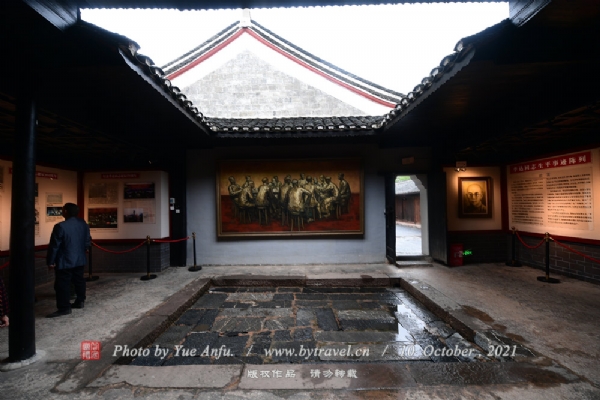
Yongzhou Lida Guju.
Guided Tours: For a more enriching experience, guided tours are available. These tours provide deeper insights into Li Da’s life, his contributions to Chinese society, and the architectural significance of the residence. It’s recommended to book these tours in advance, especially during peak tourism seasons.
Accessibility: The site is accessible to visitors with mobility challenges. The local authorities have made efforts to ensure that paths and entrances accommodate all guests.
Visitor Capacity: To preserve the integrity of the site and ensure a comfortable experience for all visitors, there may be a limit on the number of guests allowed at a time. It’s wise to visit during weekdays to avoid larger crowds.
Directions
Yongzhou Lida Guju is located in the city of Yongzhou, in Hunan Province. It is easily reachable by public transport or by car, with ample parking available nearby. Public buses from the city center can take you close to the site, followed by a short walk.
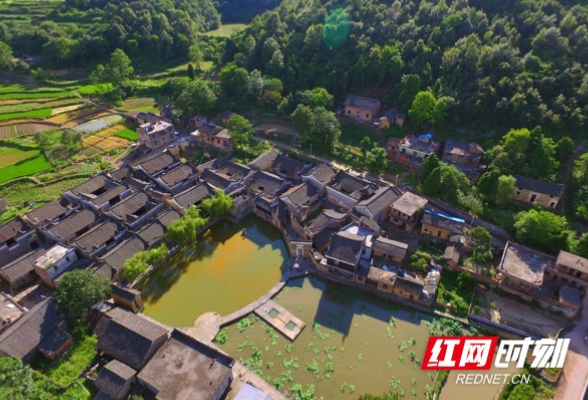
Yongzhou Lida Guju.
Before planning your visit, always check the local tourism website or contact the site directly for the most current information regarding entry fees, special events, and any potential changes in hours of operation. Enjoy your journey through history at Yongzhou Lida Guju!
How to Get There
Getting to Yongzhou Lida Guju is relatively straightforward, as the site is well-connected by various modes of transportation. Here’s a comprehensive guide to help you navigate your journey to this significant historical landmark.
By Air
The nearest major airport to Yongzhou is the Yongzhou Lingling Airport (LLG), located approximately 30 kilometers from the Lida Guju. This airport offers limited domestic flights, primarily connecting to larger hubs like Changsha. From the airport, you can take a taxi or arrange for a private transfer to reach the historical site.
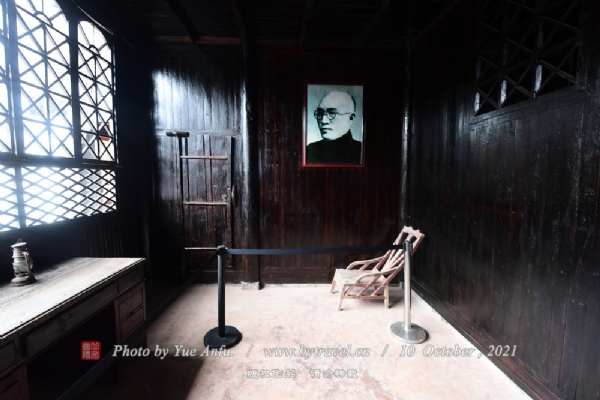
Yongzhou Lida Guju.
By Train
Yongzhou is accessible via the Yongzhou Railway Station, which is well-connected to several cities in Hunan province and beyond. High-speed trains from major cities like Changsha and Guangzhou make it convenient for travelers. Once you arrive at Yongzhou Railway Station, you can take a taxi or a local bus to reach Lida Guju, which is about 3 kilometers away from the station.
By Bus
Long-distance buses operate from various cities to Yongzhou, with the Yongzhou Long-distance Bus Station serving as the main terminal. Frequent services run from Changsha, Guangzhou, and other neighboring cities. After arriving at the bus station, you can take local buses or taxis to your destination.
Local Transportation
Once in Yongzhou, several local bus routes (such as routes 301, 302, 303, 306, 24, and 36) can take you to the Citizen Center Station, from where Lida Guju is just a 3-kilometer walk or a short taxi ride away.
Suggested Routes
- From Yongzhou Railway Station: Take a taxi directly to Lida Guju for a hassle-free journey.
- From Yongzhou Long-distance Bus Station: Opt for a local taxi or a ride-sharing service to reach your destination quickly.
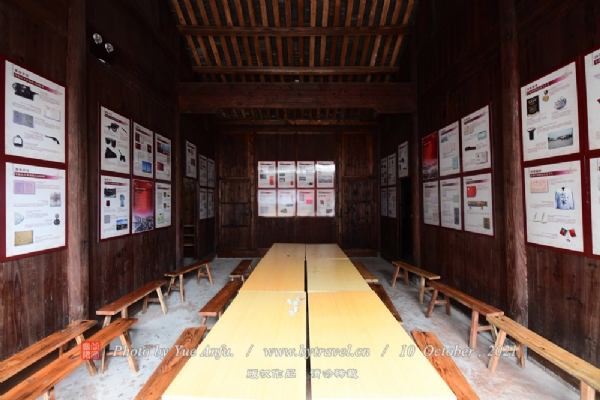
Yongzhou Lida Guju.
Accessibility
The site is situated in a serene environment, surrounded by rice fields and bamboo groves, making for a picturesque journey. The area is pedestrian-friendly, allowing visitors to enjoy the scenic beauty as they approach the historical complex.
Tips for Travelers
- Plan Ahead: Check the train and bus schedules in advance to ensure smooth connections, especially during peak tourist seasons.
- Language: While some locals may speak basic English, it’s advisable to have your destination written in Chinese to show taxi drivers.
- Cash: Keep some cash handy, as not all local transportation may accept credit cards.
By following this transportation guide, you can easily reach Yongzhou Lida Guju and immerse yourself in the rich history and culture that this site has to offer.
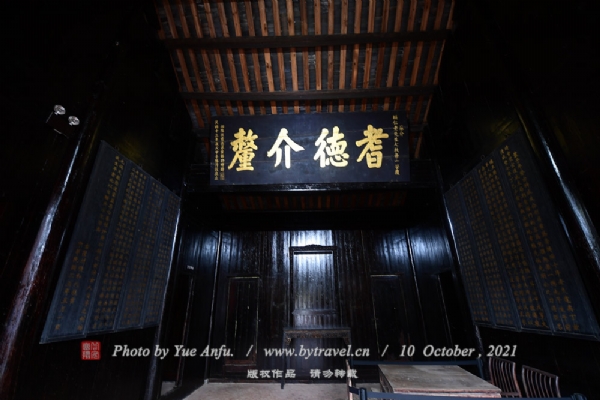
Yongzhou Lida Guju.
Local Cuisine and Accommodation
When visiting Yongzhou Lida Guju, you’ll find yourself immersed not only in history but also in the rich culinary culture and accommodating hospitality of the region. Here’s a guide to some delectable local dishes and suitable places to stay while exploring this significant landmark.
Culinary Delights
Yongzhou is renowned for its distinctive cuisine, which reflects the flavors and ingredients of Hunan Province. While visiting Lida Guju, be sure to indulge in these local specialties:
-
Zhong Li Duck (零陵板鸭): A local favorite, this dish features ducks marinated with a blend of spices and then smoked or dried, giving it a unique flavor that is both savory and aromatic.
-
Dong’an Chicken (东安鸡): This dish is a must-try for chicken lovers. It is typically prepared with a mix of spices and herbs, then steamed to preserve the meat’s tenderness and flavor.
-
Ningyuan Blood Duck (宁远血鸭): A traditional dish that utilizes duck blood, this dish is often cooked with various spices and served in a rich broth, showcasing the region’s culinary ingenuity.
-
Huangyangsi Bamboo Fish (黄阳司竹鱼): Freshly caught fish grilled in bamboo, this dish encapsulates the essence of the local environment and is a delightful way to enjoy the region’s natural bounty.
-
Various Local Snacks: Don’t miss out on trying Jiangyong rice cakes and Qiyang tea oil, which are popular snacks among locals and visitors alike.
Where to Stay
For accommodations, Yongzhou offers a variety of options that cater to different preferences and budgets. Here are a few recommendations:
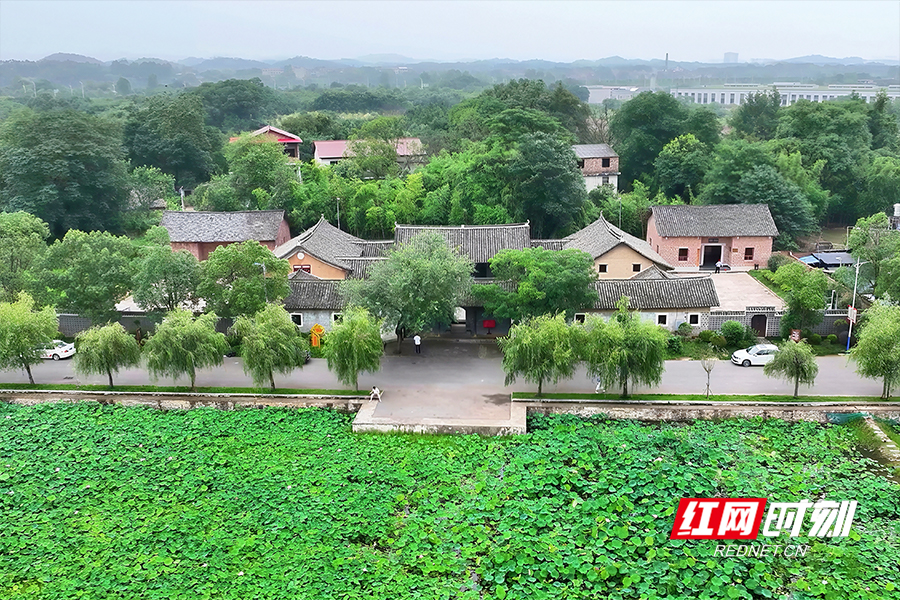
Yongzhou Lida Guju.
-
Yongzhou Grand Hotel (永州大酒店): This upscale hotel is conveniently located near the city center. It features comfortable rooms, modern amenities, and a restaurant serving both local and international cuisine. Great for those looking for a luxurious stay.
-
Yongzhou Jinjiang Hotel (永州锦江酒店): A more budget-friendly option, this hotel offers clean and cozy rooms with basic amenities. It’s well-situated, making it easy to explore nearby attractions, including Lida Guju.
-
Local Guesthouses: For a more authentic experience, consider staying at one of the local guesthouses. Many are family-run and provide a warm atmosphere, along with opportunities to engage with local culture. They often serve homemade meals, allowing you to experience Hunan cuisine firsthand.
Recommendations for a Memorable Stay
While exploring Lida Guju and the surrounding area, take the time to enjoy the local food scene and hospitality. Whether you opt for a luxurious hotel or a charming guesthouse, you’ll find that Yongzhou not only offers historical significance but also a delightful culinary journey that captures the essence of Hunan culture. Don’t forget to savor the local flavors, as they truly reflect the rich heritage of this remarkable region.
Frequently Asked Questions
Frequently Asked Questions about Yongzhou Lida Guju (李达故居)
1. What is Yongzhou Lida Guju?
Yongzhou Lida Guju, also known as the Former Residence of Li Da, is a historical site located in the Lanjiashan Town of Yongzhou, Hunan Province, China. It is the birthplace and childhood home of Li Da, a prominent founder of the Chinese Communist Party and a significant Marxist theorist.
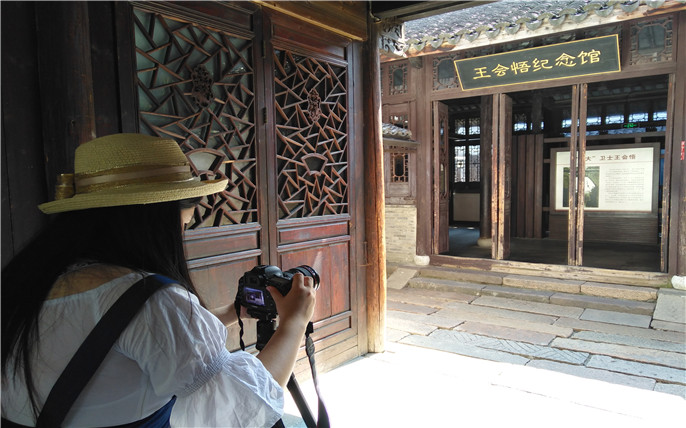
Yongzhou Lida Guju.
2. Why is Lida Guju considered an important historical site?
The residence is recognized as a key revolutionary memorial and marks the birthplace of Li Da, who was a key figure in the introduction and dissemination of Marxism in China. It has historical significance as it reflects the social and cultural developments in China from the late Qing Dynasty to the present day.
3. What architectural style is Lida Guju?
Lida Guju is a classic example of Hunan’s traditional architecture, featuring a brick-and-wood courtyard layout typical of the late Qing period. The residence comprises several structures arranged symmetrically around a central courtyard, showcasing intricate decorations and traditional building techniques.
4. What can visitors expect to see at Lida Guju?
Visitors can explore the beautifully preserved courtyard, which includes 31 rooms, various exhibitions detailing Li Da’s life and contributions, and artifacts related to his legacy. The site also features a bamboo garden and rice fields, enhancing its historical ambiance.
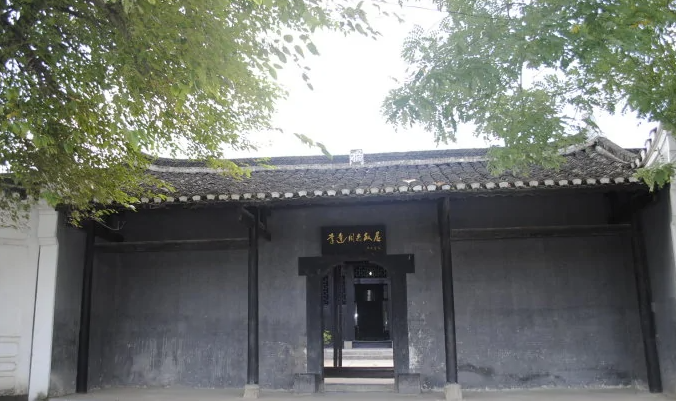
Yongzhou Lida Guju.
5. How do I get to Lida Guju?
Lida Guju is accessible via local public transportation. Visitors can take buses 301, 302, 303, 306, 24, or 36 to the Citizen Center station and then walk or drive approximately 3 kilometers to the site.
6. Are there any educational programs available at Lida Guju?
Yes, Lida Guju serves as a national model for patriotism education and frequently hosts educational programs aimed at promoting awareness of Chinese history and culture, particularly relating to the revolutionary past.
7. What are the opening hours and admission fees?
While specific hours may vary, Lida Guju generally welcomes visitors throughout the week. Admission is typically free, but special exhibitions or educational programs may have associated fees.
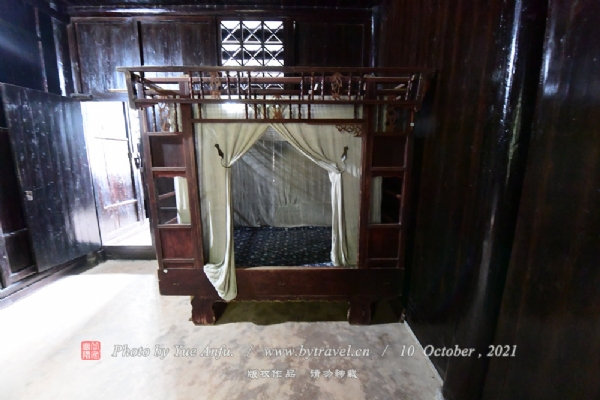
Yongzhou Lida Guju.
8. Can I take photographs at Lida Guju?
Photography is usually permitted in most areas of Lida Guju, allowing visitors to capture the beauty of the architecture and the surrounding landscape. However, it is advisable to check for any specific restrictions, especially during guided tours or exhibitions.
Final Thoughts on Your Trip
Visiting Yongzhou Lida Guju is not merely a trip; it is an exploration of the roots of revolutionary thought and a journey into the rich tapestry of Chinese history. This historic residence, the birthplace of Li Da, one of the key founders of the Chinese Communist Party, serves as a powerful reminder of the enduring impact of ideology and education in shaping modern China.
Walking through the elegantly designed courtyard, with its traditional architecture and serene surroundings, visitors can reflect on Li Da’s significant contributions to Marxist theory and education. The house is not just a memorial; it embodies the spirit of perseverance, intellectual pursuit, and the quest for social justice that characterized Li Da’s life.
The site stands as a testament to China’s revolutionary past and offers an enriching experience for those interested in history, philosophy, and cultural heritage. As you leave Yongzhou Lida Guju, may you carry with you not only the stories of the past but also a renewed appreciation for the values of education and social change that continue to inspire generations. Whether you are a history buff, a student of philosophy, or simply a curious traveler, this remarkable place invites you to pause, reflect, and connect with the ideals that have shaped a nation.
